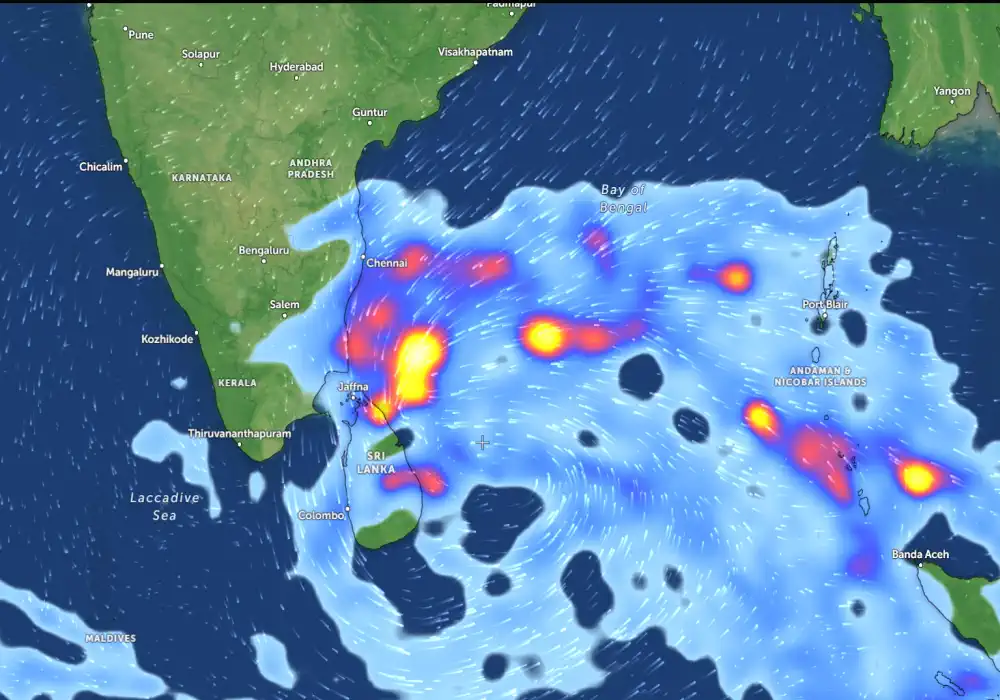Tropical depression to affect Sri Lanka and southern India.

A tropical depression formed in the Bay of Bengal will affect Sri Lanka and southern states of India in the coming days. According to meteorological services, the depression is likely to move in a west-northwesterly direction, approaching the east coast of Sri Lanka on November 24-25, 2024. Heavy rains, gusty winds and localized flooding in coastal areas are expected.
Impact on Sri Lanka:
Heavy rainfall is expected, especially in northeastern areas.
Flooding and landslides are possible, posing a threat to low-lying areas.
Residents are advised to be prepared for power outages and disruption to transport services.
Impact on India:
Southern states such as Tamil Nadu, Kerala and Andhra Pradesh will also experience increased monsoon rainfall.
Flooding is expected in isolated areas, especially in low-lying areas and along rivers.
Authorities have warned of possible disruption to transport infrastructure and communication services.
The current probability of the current tropical depression over the Bay of Bengal developing into a hurricane (cyclone) is low to moderate. According to meteorological models, the system will remain a depression in the next 24-48 hours and may reach the level of a deep cyclone. However, its intensity will be limited due to its proximity to land and the influence of wind shear.
Factors Affecting Strengthening:
Warm water temperatures in the Bay of Bengal may contribute to the strengthening of the system, as the sea remains the main source of energy for the cyclone.
Wind Shear: If the vertical wind shear (the difference in speed at different altitudes) remains moderate, this will create favorable conditions for further development of the system.
Path over land: The proximity to Sri Lanka and eastern India may limit the development of the cyclone due to a decrease in the energy potential over land.
Tropical Depression Outlook:
The depression remains capable of developing into a full-blown tropical cyclone, but an intense hurricane (Category 1 or higher) is unlikely. Continued monitoring of the system and prompt warnings will guide regional authorities' actions.